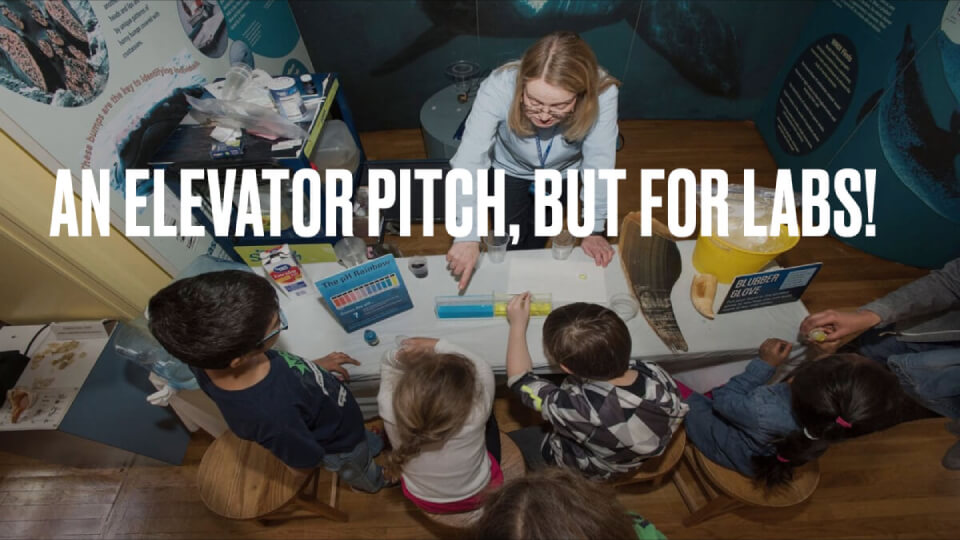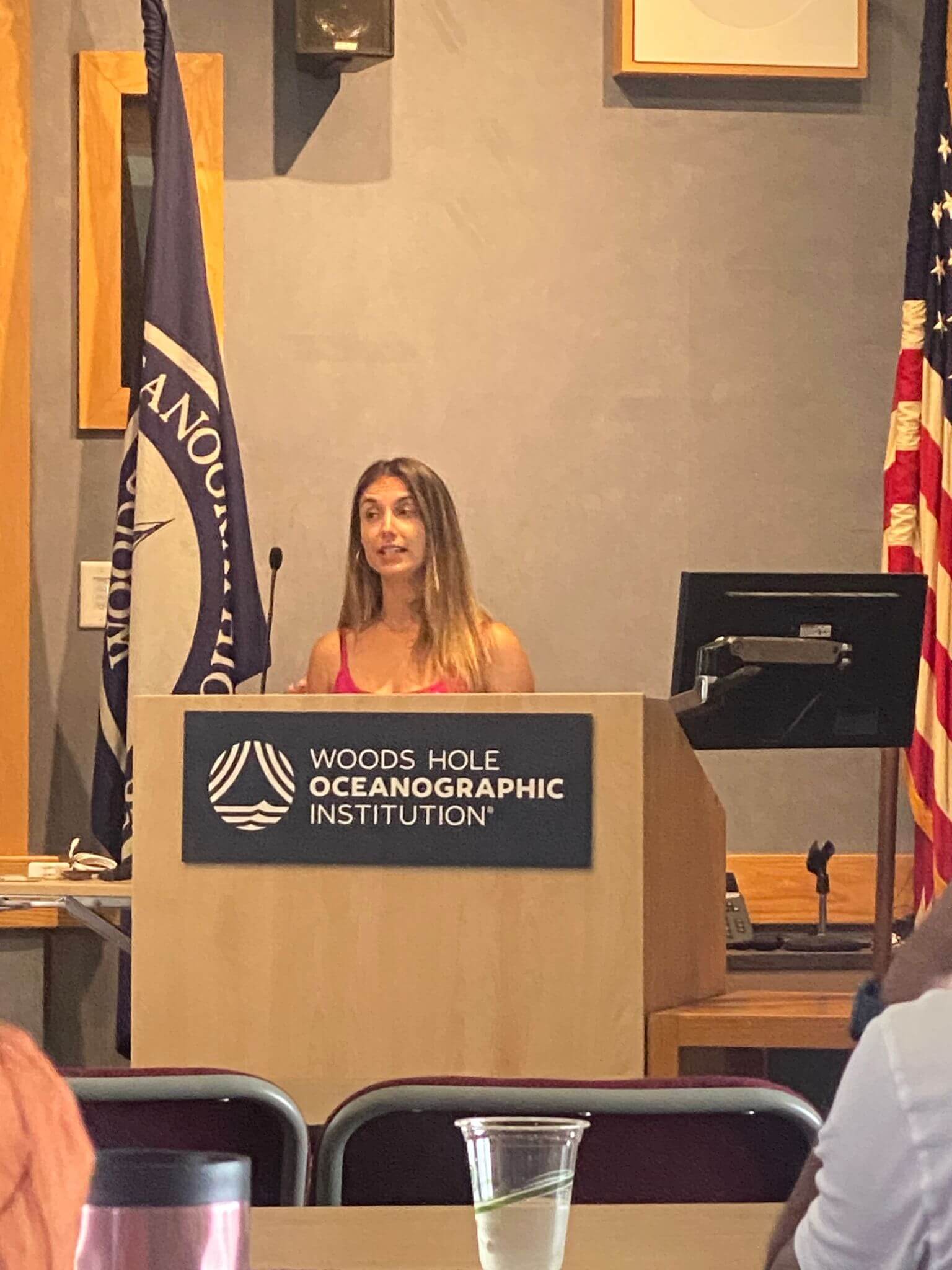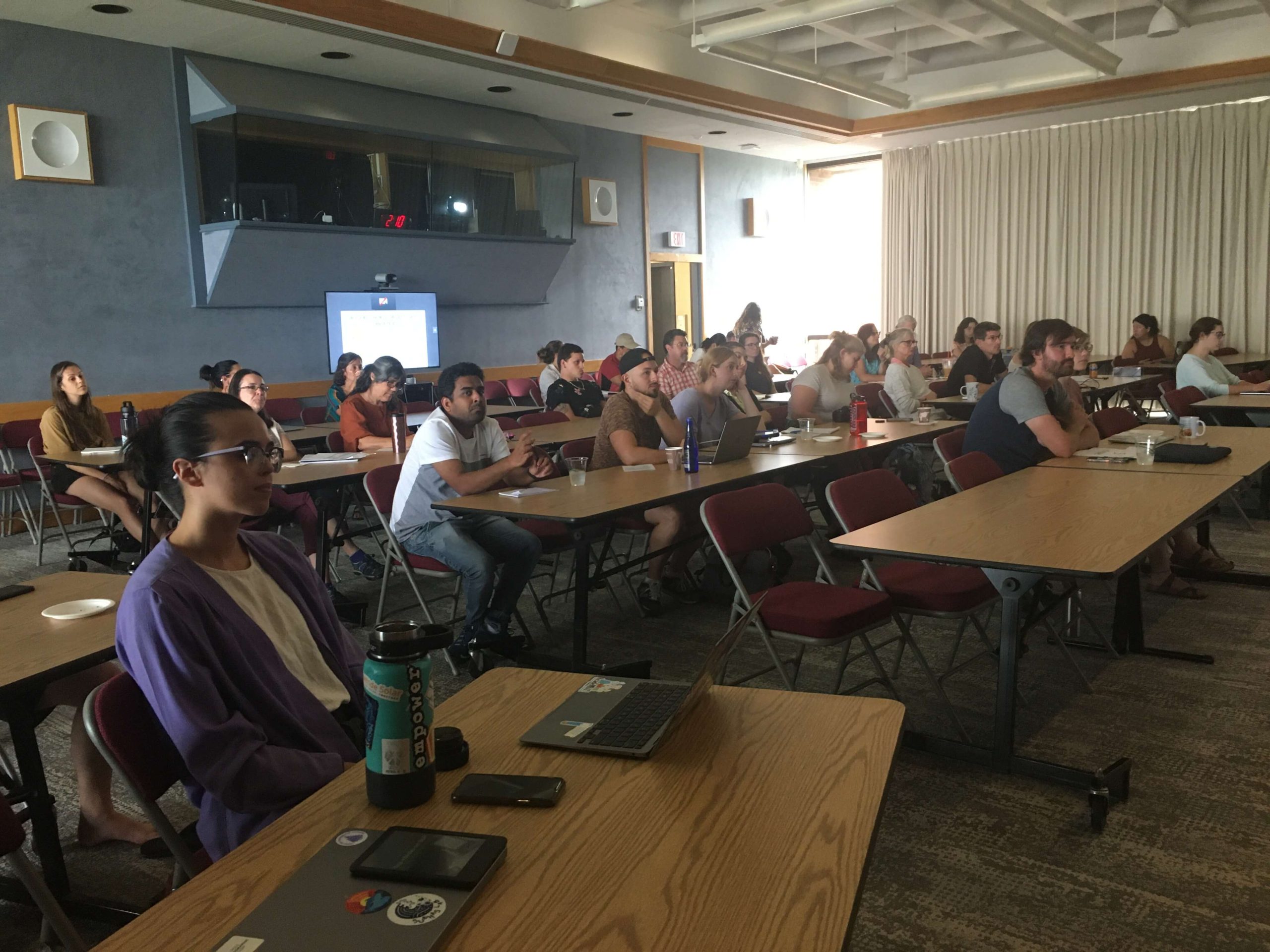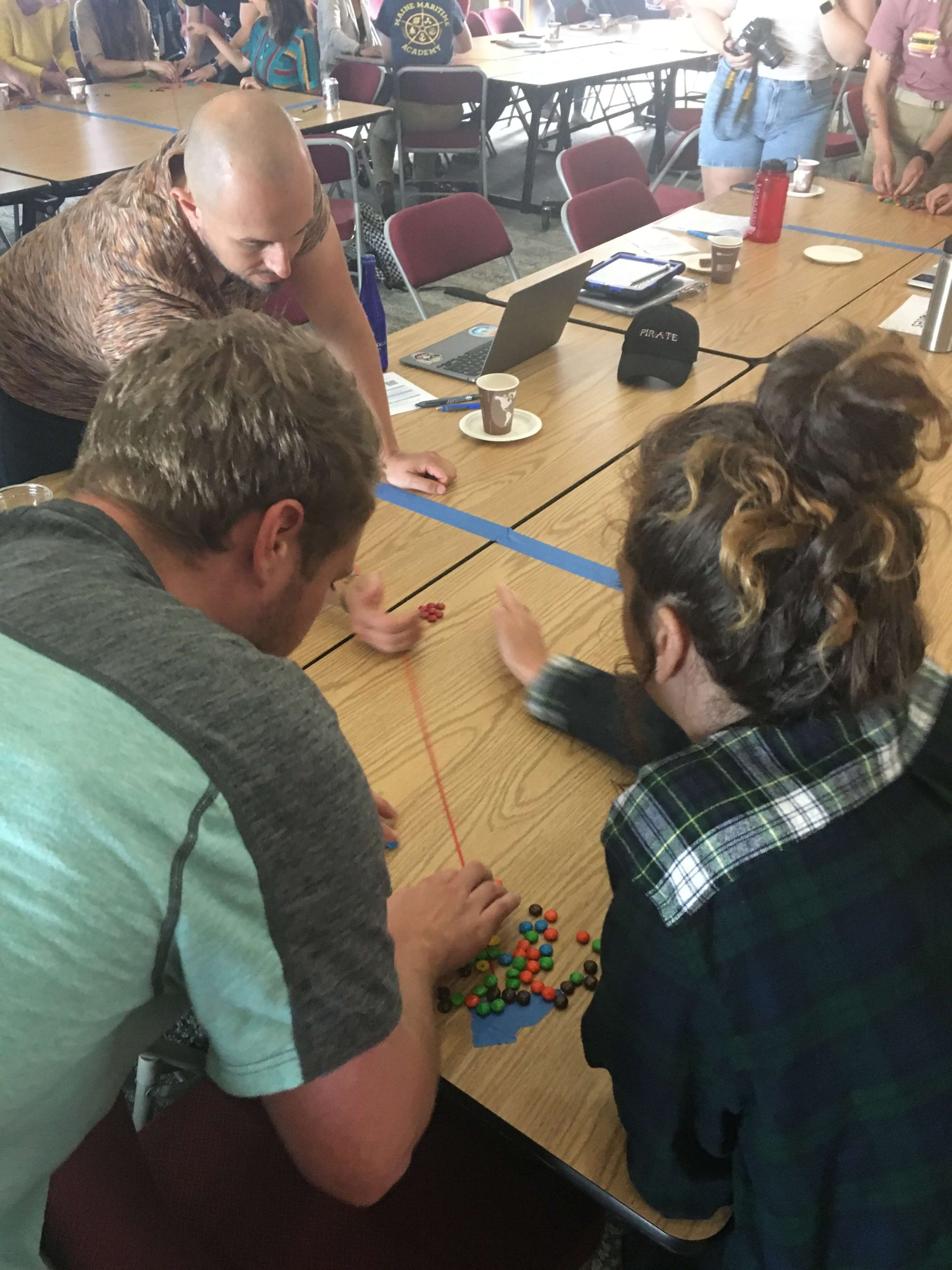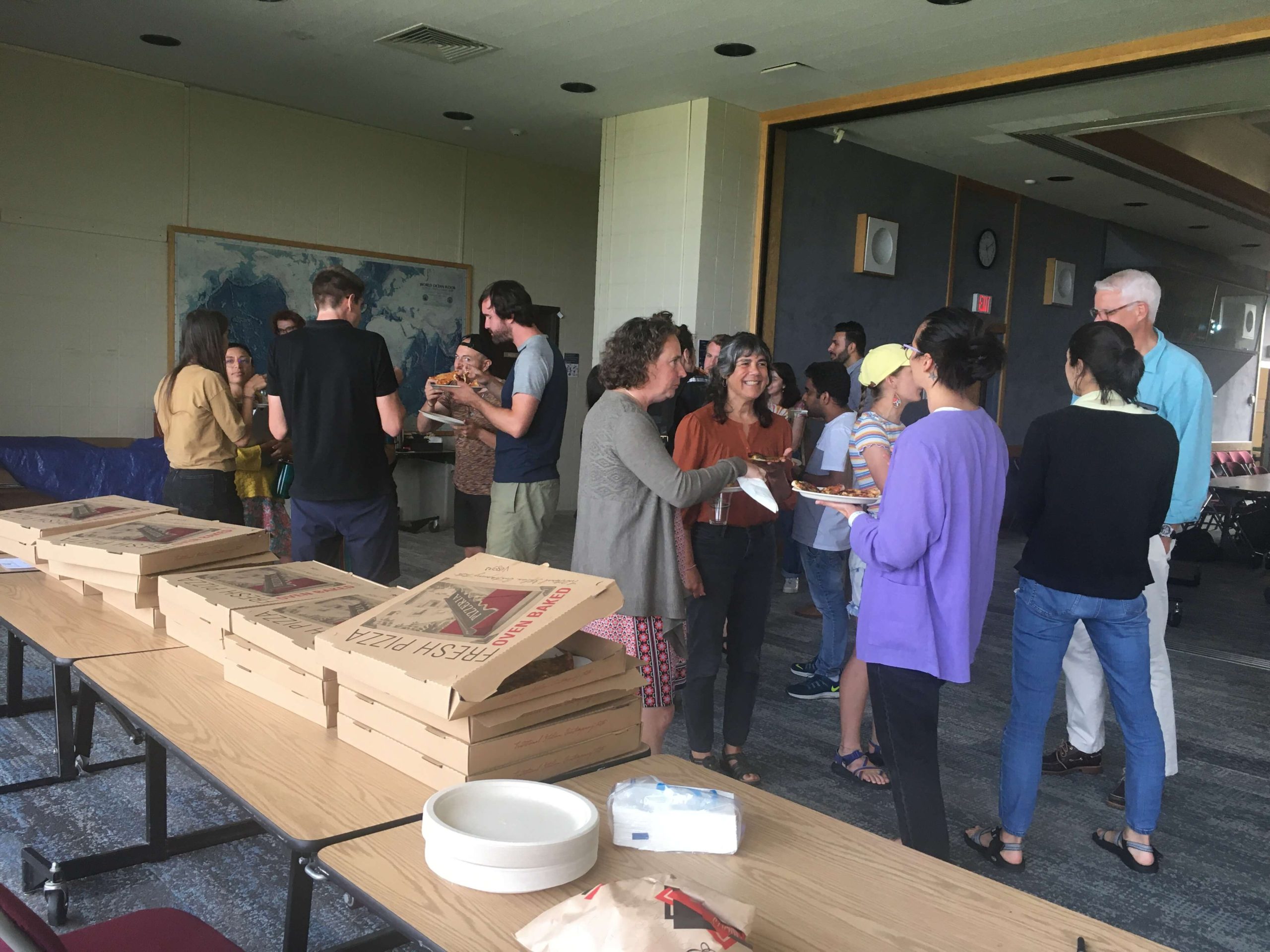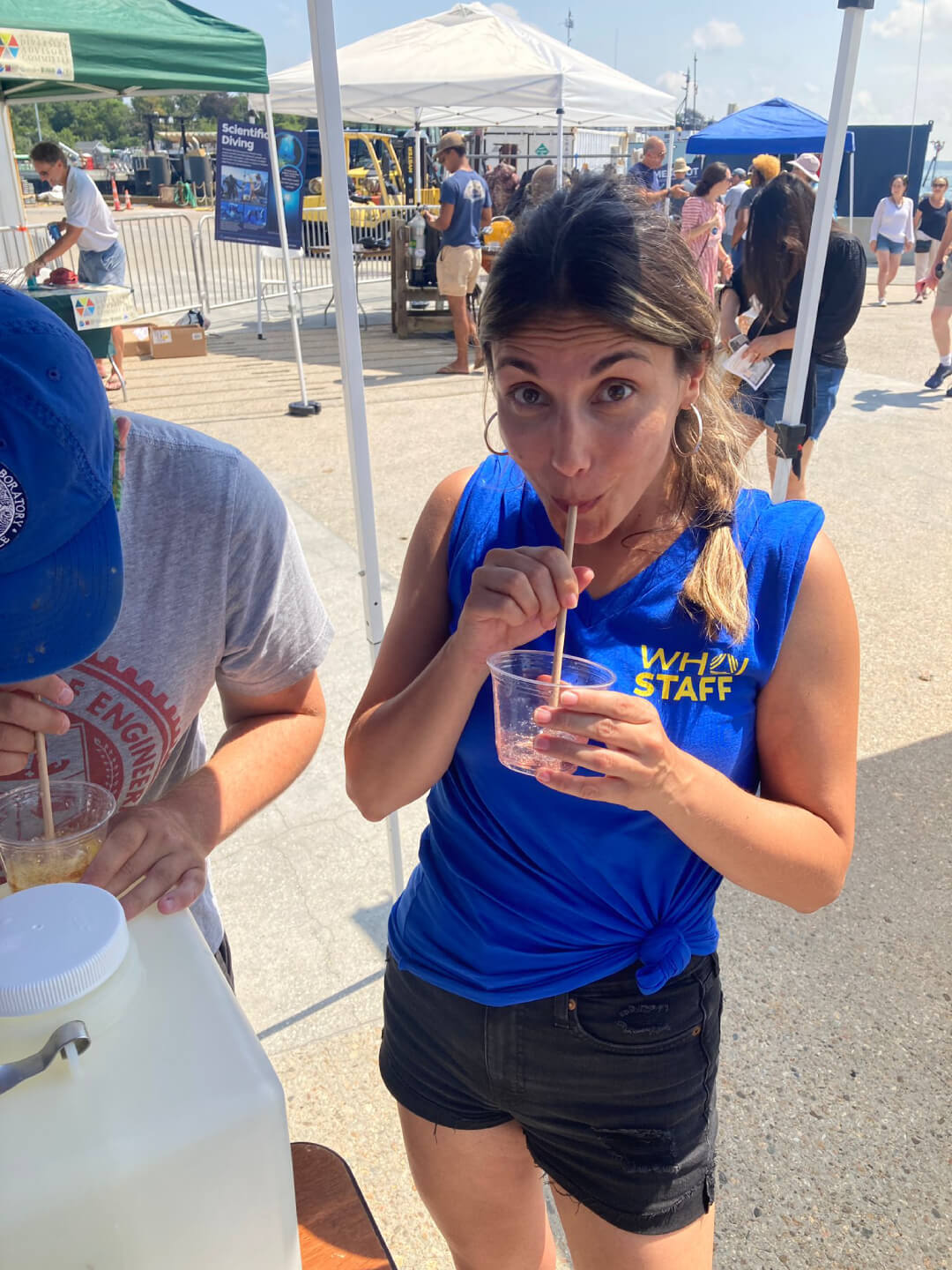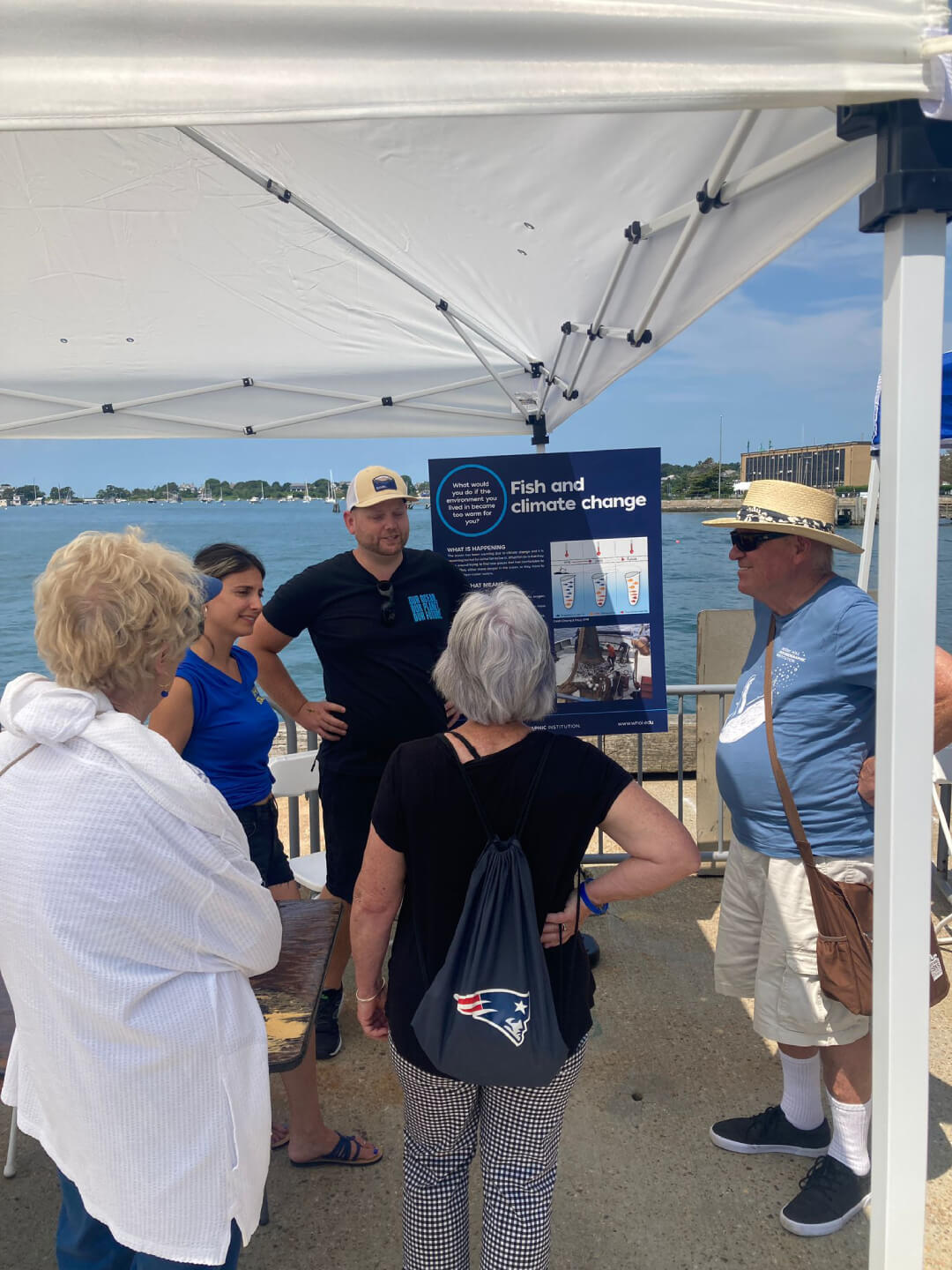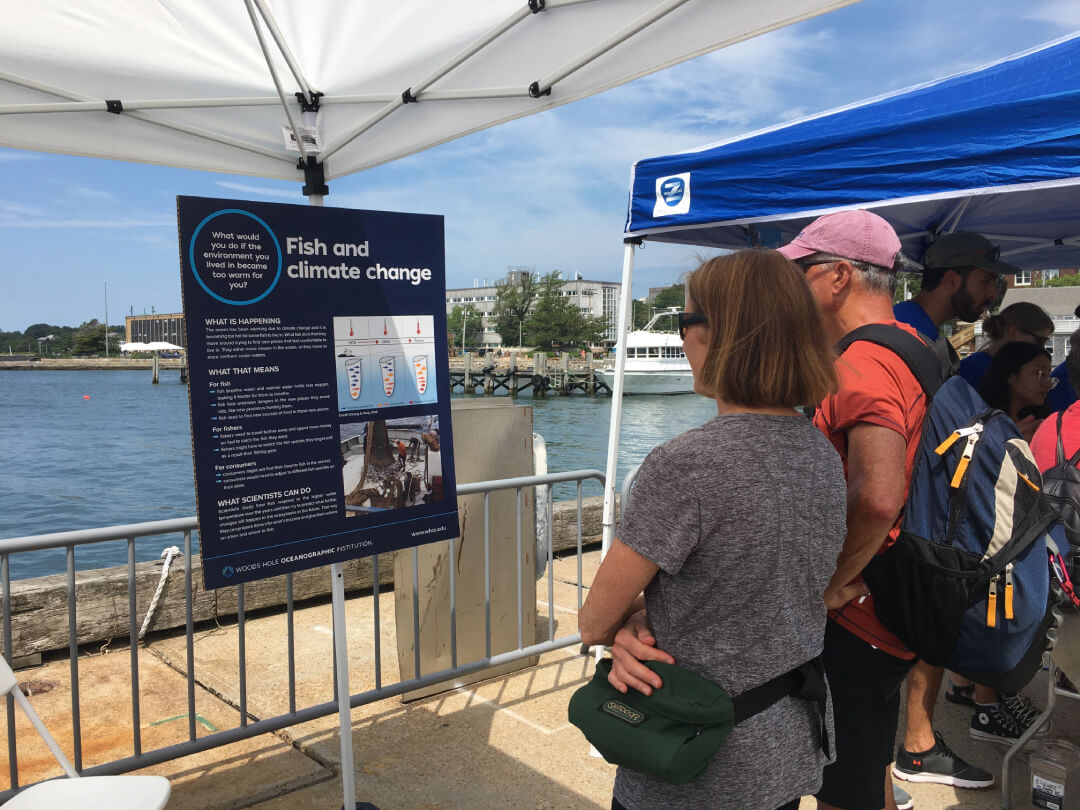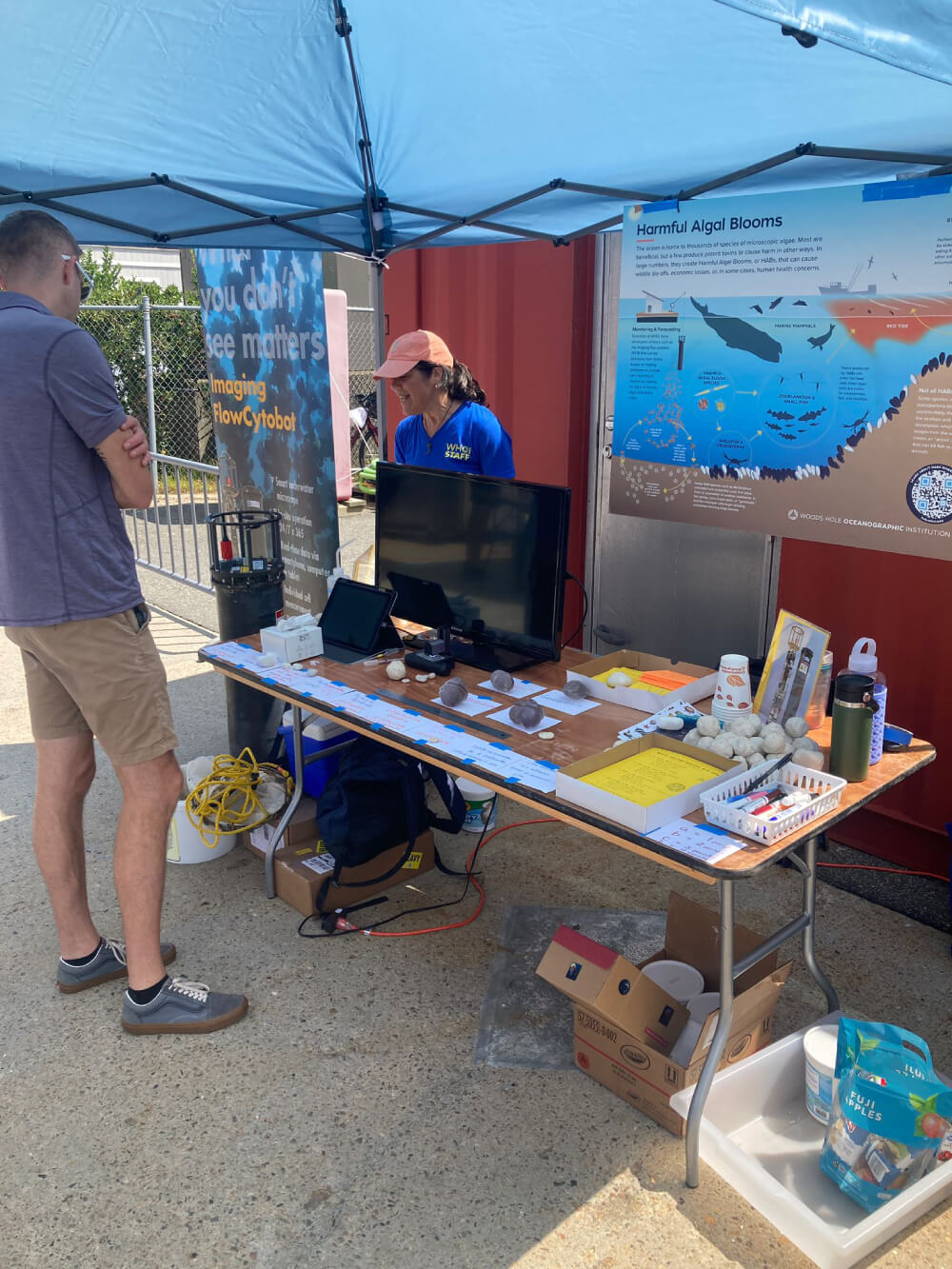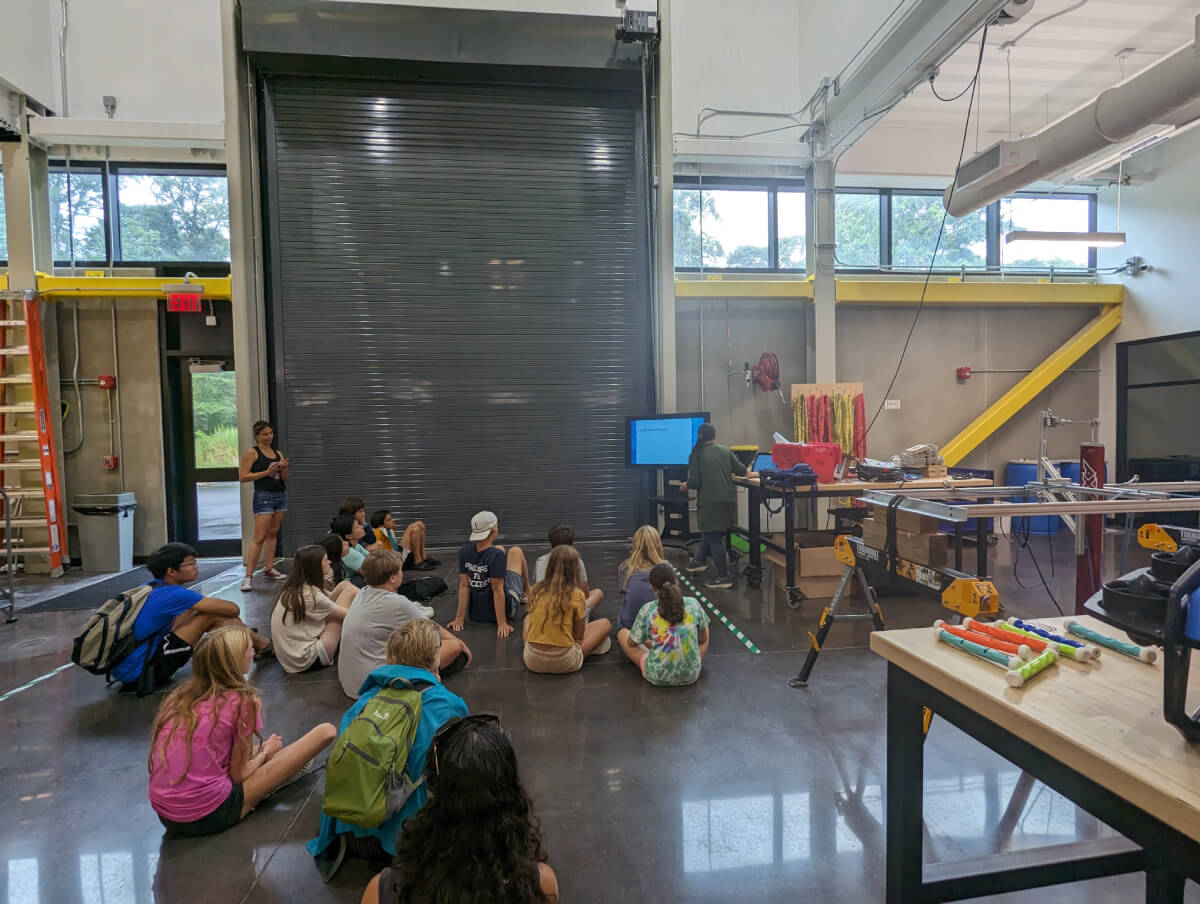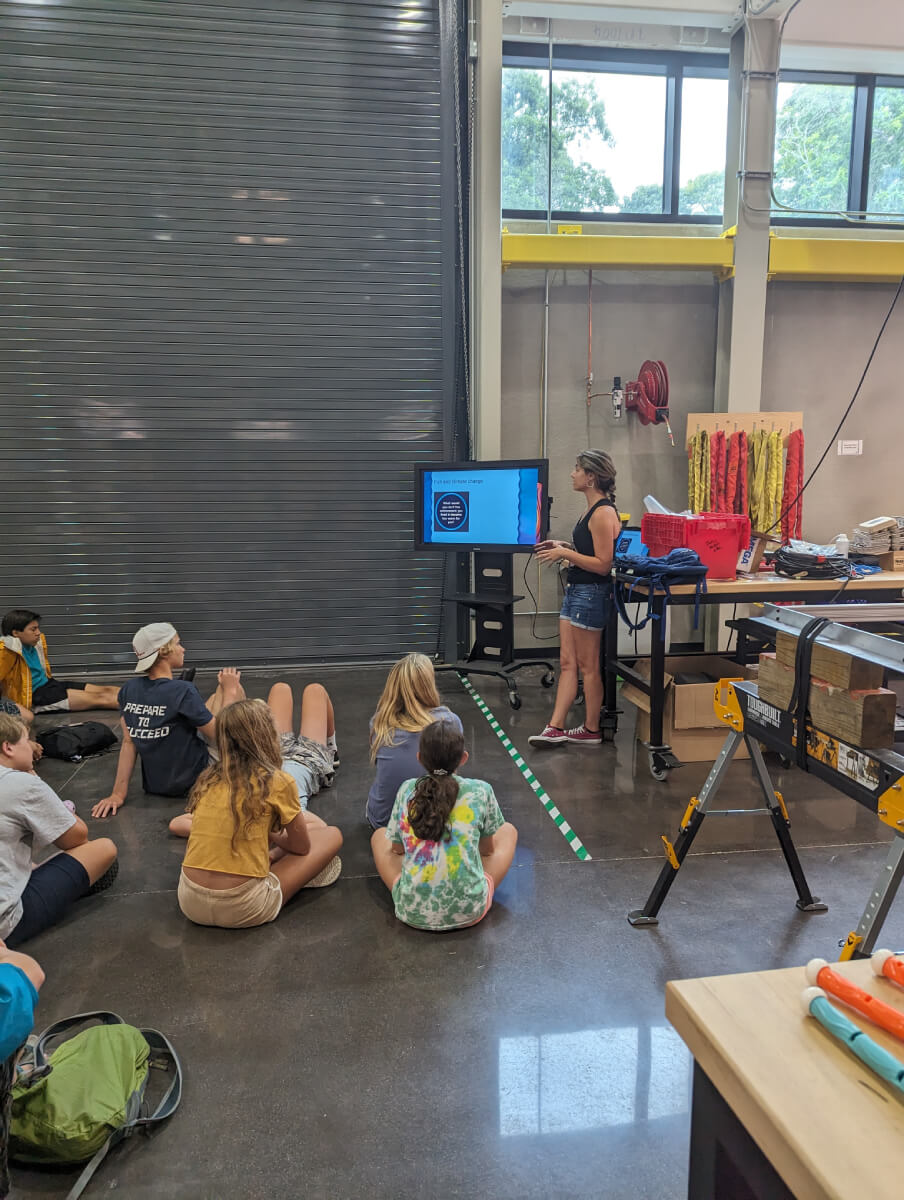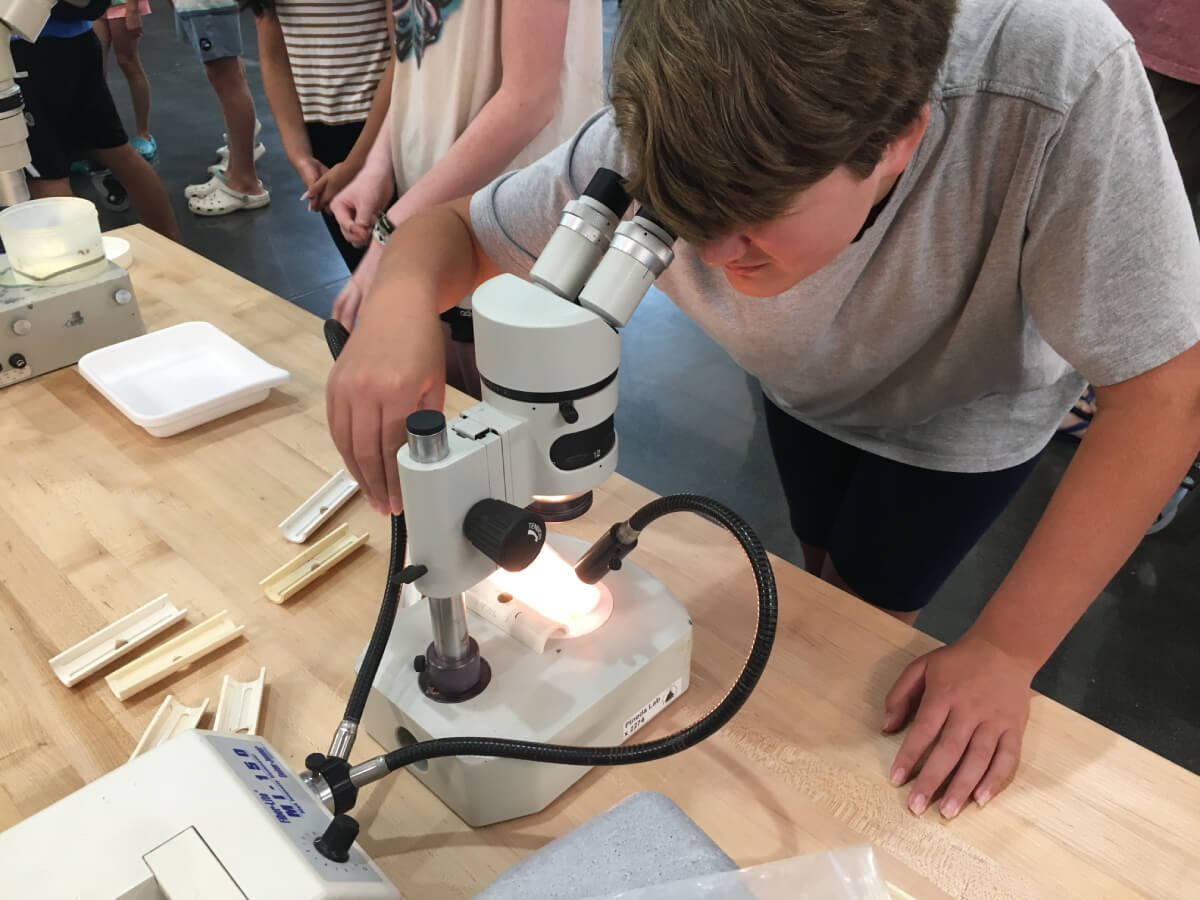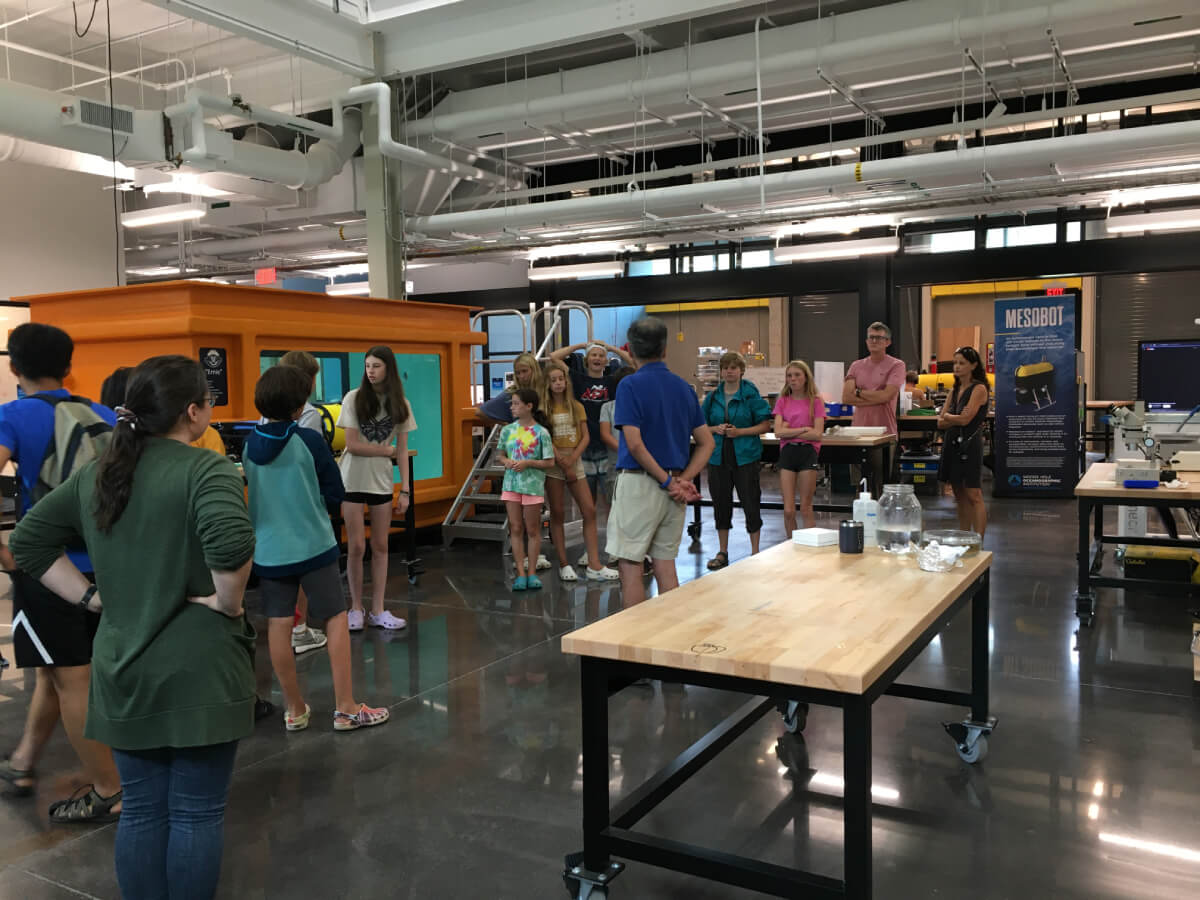Together with colleagues at Woods Hole Oceanographic Institution (WHOI) we organized a workshop on science communication (SciComm) as part of our new initiative titled “Elevator pitches for labs: Building hands-on tools to communicate lab-based research”. The initiative, which is funded by the WHOI Sea Grant, aims at facilitating lab-based SciComm to non-specialists by building demos and developing hands-on activities that communicate sophisticated science in an accessible manner.
The workshop brought together WHOI SciComm experts and a local school teacher to talk about SciComm in various settings and SciComm tips and best practices. The participants, i.e., ~50 WHOI students, postdocs, scientific and technical staff, had the opportunity to interact with the speakers and take part in a live hands-on activity that used M&Ms to teach magma crystallization.
Some take-home messages that may support interested researchers in creating lab-demos and hands-on activities to communicate their science:
The workshop inspired WHOI labs to participate in our initiative with cool interactive ideas that were presented at the Woods Hole Science Stroll on August 12th, 2023. The Science Stroll is an annual event celebrating world-class ocean science with hands-on activities and demonstrations for more than 2,000 visitors of all ages!
Personally, I had fantastic discussions with visitors about the effects of climate change on fish and fisheries and was surprised to find out that people who have been fishing recreationally in the area for years have noticed the changes in warming waters themselves! Empirical observations do agree with the data!
Other labs that got funded through our initiative prepared fun interactive activities for young and old that communicated their labs’ science on ocean alkalinity enhancement, harmful algal blooms, and right whale tracking methods.
In the Pineda lab we also had the opportunity to participate in the Children’s School of Science program where we interacted with middle school students from the Cape Cod area talking to them about barnacle research, ocean change, and fisheries. Students enjoyed looking in the microscope for tiny marine creatures, touching different types and sizes of barnacles, and exploring the AVAST facilities at WHOI.
